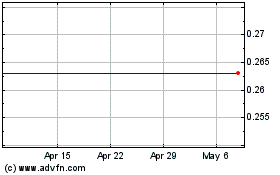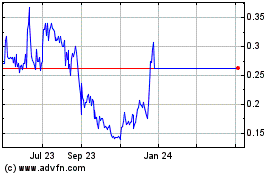Applied Molecular Transport Inc. (Nasdaq: AMTI) (AMT) today
announced that the U.S. Food and Drug Administration has granted
Orphan Drug Designation for AMT-101 in patients with pouchitis, an
indication with significant unmet medical need and no current
FDA-approved products. AMT-101 is an investigational, once-daily,
GI-selective, oral fusion of IL-10 and AMT’s proprietary carrier
molecule, which is also in development for the treatment of
ulcerative colitis (UC) and rheumatoid arthritis (RA).
“Pouchitis is a severe end-stage complication of
ulcerative colitis with serious symptoms that have a tremendous
negative impact on quality of life, including excessive stool
frequency, urgency, fecal incontinence and chronic pain,” said
Bittoo Kanwar, M.D., chief medical officer of AMT. “Following the
results observed in our FILLMORE trial demonstrating compelling
activity of AMT-101 in pouchitis, we look forward to continued
collaboration with the FDA as we remain focused on Phase 3
advancement in this patient population. If ultimately approved,
AMT-101 may be the first product approved in the U.S. to treat
pouchitis and potentially improve the lives of patients suffering
from this condition.”
Earlier this year, AMT completed the FILLMORE
trial, a randomized, double-blinded Phase 2 trial that evaluated
the safety and efficacy of orally administered AMT-101 monotherapy,
over 12 weeks, in patients with chronic pouchitis. Results from the
trial demonstrated that 36.4% (8/22) of patients achieved stool
frequency response, defined as a reduction of ≥ 3 stools and ≥ 30%
from baseline, OR ≤ post-colectomy normal. Rapid onset of stool
frequency response was demonstrated as early as week 2 in both
dosage groups and was maintained through the duration of treatment.
Top-line interim data demonstrated additional symptomatic
improvements in fecal urgency, incontinence and abdominal cramps.
In addition, 22.7% (5/22) of patients met the pre-specified
histologic healing response of Geboes score ≤ 3.1, an objective
assessment of disease improvement. FILLMORE patients had a median
baseline Geboes score of 5.1, representing severe pouchitis with
ulceration and tissue destruction. AMT-101 appeared safe and
well-tolerated. Treatment emergent adverse events (TEAEs) were
mostly mild to moderate, with only one serious adverse event (SAE)
observed, cytomegalovirus (CMV) infection, which was determined to
be unrelated to study drug.
Orphan Drug Designation is granted by the FDA to
drugs or biologics intended to treat a rare disease or condition,
defined as one that affects fewer than 200,000 people in the U.S.
Orphan Drug Designation provides certain financial incentives to
support clinical development, and the potential for up to seven
years of marketing exclusivity for the product for the designated
orphan indication in the U.S. if the product is ultimately approved
for its designated indication.
About PouchitisApproximately
30% of patients with UC eventually require total colectomy. Ileal
pouch-anal anastomosis (IPAA) is the surgical treatment of choice
as it avoids permanent ileostomy and is associated with better
quality of life outcomes. Up to 60,000 patients in the U.S. alone
experience pouchitis, inflammation in the lining of the pouch,
after IPAA surgery. Acute pouchitis often responds to antibiotic
treatment but up to 50% of pouchitis patients develop chronic
pouchitis where patients often relapse on or do not respond to
antibiotic therapy. Pouchitis is characterized by clinical symptoms
of excessive stool frequency, urgency, fecal incontinence,
nocturnal seepage and lower abdominal pain. Pouchitis is an orphan
indication with no current FDA-approved products.
About AMT-101AMT-101 is a novel GI-selective,
oral fusion of IL-10 and AMT’s proprietary carrier molecule,
currently in development in four Phase 2 clinical trials for
chronic pouchitis, UC and RA. AMT-101 is designed to cross the
intestinal epithelial (IE) barrier with limited entry into the
bloodstream, thereby focusing IL-10 at the primary site of
inflammation in IBD, along the intestinal tissue lamina propria,
potentially avoiding the side effects observed with systemic
administration.
About FILLMOREFILLMORE is a Phase 2
double-blinded trial that evaluated the safety and efficacy of
orally administered AMT-101 monotherapy, over 12 weeks, in patients
with chronic pouchitis. The FILLMORE trial randomized 22 patients
to 3mg or 10mg of oral AMT-101. The trial was conducted across 33
sites and 11 countries in patients with daily stool frequency ≥ 6
(and > 3 stools per day more than baseline), Modified Pouchitis
Disease Activity Index (mPDAI) score ≥ 5, and histological evidence
of pouchitis (Geboes ≥ 3.1), among other entry criteria. Patients
must have failed at least one round of antibiotic therapy and no
lead-in or rescue antibiotic therapy was allowed.
About Applied Molecular Transport
Inc.AMT is a clinical-stage biopharmaceutical company
developing novel oral biologic product candidates, by leveraging
its technology platform to design and advance a multi-product
pipeline to treat autoimmune, inflammatory, metabolic and other
diseases. AMT is developing its oral biologic product candidates in
patient-friendly oral dosage forms that are designed to either
target local intestinal tissue or enter systemic circulation to
precisely address the relevant pathophysiology of disease. AMT’s
proprietary technology platform allows it to exploit existing
natural cellular trafficking pathways to facilitate the active
transport of diverse therapeutic modalities across the IE barrier.
Active transport is an efficient mechanism that uses the cell’s own
machinery to transport materials across the IE barrier.
AMT’s headquarters, internal GMP manufacturing
and lab facilities are located in South San Francisco, CA. For
additional information on AMT, please visit
www.appliedmt.com.
Forward-Looking StatementsThis press release
contains forward-looking statements as that term is defined in
Section 27A of the Securities Act of 1933 and Section 21E of the
Securities Exchange Act of 1934. Such forward-looking statements
involve substantial risks and uncertainties. All statements other
than statements of historical facts contained in this press release
are forward-looking statements including statements relating to
AMT’s plans, expectations, forecasts and future events. Such
forward-looking statements include, but are not limited to, the
potential of, and expectations regarding AMT’s technology platform,
statements regarding scaling our organization, growth of clinical
activities, or pipeline expansion, statements regarding the
optimization or expansion of our product development plans or the
design of future clinical trials, statements regarding the
potential of AMT-101 or regarding AMT-101 clinical trials,
including the timing of data readouts from such trials including
top-line results from the MARKET trial in combination with
anti-TNFα for UC, the LOMBARD trial as a monotherapy for UC and the
CASTRO trial in combination with anti-TNFα for RA, statements
regarding the market potential of AMT’s product candidates,
advancing product candidates to future phases of development,
statements regarding our ability to obtain regulatory approval for
AMT’s product candidates, and program updates, milestones for such
trials, and our ability to replicate past clinical development
strategies, statements regarding the potential for AMT’s product
candidates to treat or provide clinically meaningful outcomes for
certain medical conditions or diseases, assumptions regarding the
mechanism of action of our product candidates and the potential to
avoid side effects with our product candidates, statements
regarding the market opportunity for our product candidates and
statements by AMT’s chief medical officer. In some cases, you can
identify forward-looking statements by terminology such as
“believe,” “estimate,” “intend,” “may,” “plan,” “potentially,”
“will,” “expect,” “enable,” “likely” or the negative of these terms
or other similar expressions. We have based these forward-looking
statements largely on our current expectations and projections
about future events and trends that we believe may affect our
financial condition, results of operations, business strategy and
financial needs. Actual events, trends or results could differ
materially from the plans, intentions and expectations disclosed in
these forward-looking statements based on various factors.
Information regarding the foregoing and additional risks may be
found in the section entitled “Risk Factors” in AMT’s Annual and
Quarterly Reports on Form 10-K and 10-Q filed with the Securities
and Exchange Commission (the “SEC”), and AMT’s future reports to be
filed with the SEC. These forward-looking statements are made as of
the date of this press release, and AMT assumes no obligation to
update the forward-looking statements, or to update the reasons why
actual results could differ from those projected in the
forward-looking statements, except as required by law.
Investor Relations Contact:Andrew ChangHead,
Investor Relations & Corporate
Communicationsachang@appliedmt.com
Media Contacts:Alexandra SantosWheelhouse Life
Science Advisorsasantos@wheelhouselsa.com
Aljanae ReynoldsWheelhouse Life Science
Advisorsareynolds@wheelhouselsa.com
Applied Molecular Transp... (NASDAQ:AMTI)
Historical Stock Chart
From Mar 2024 to Apr 2024

Applied Molecular Transp... (NASDAQ:AMTI)
Historical Stock Chart
From Apr 2023 to Apr 2024
